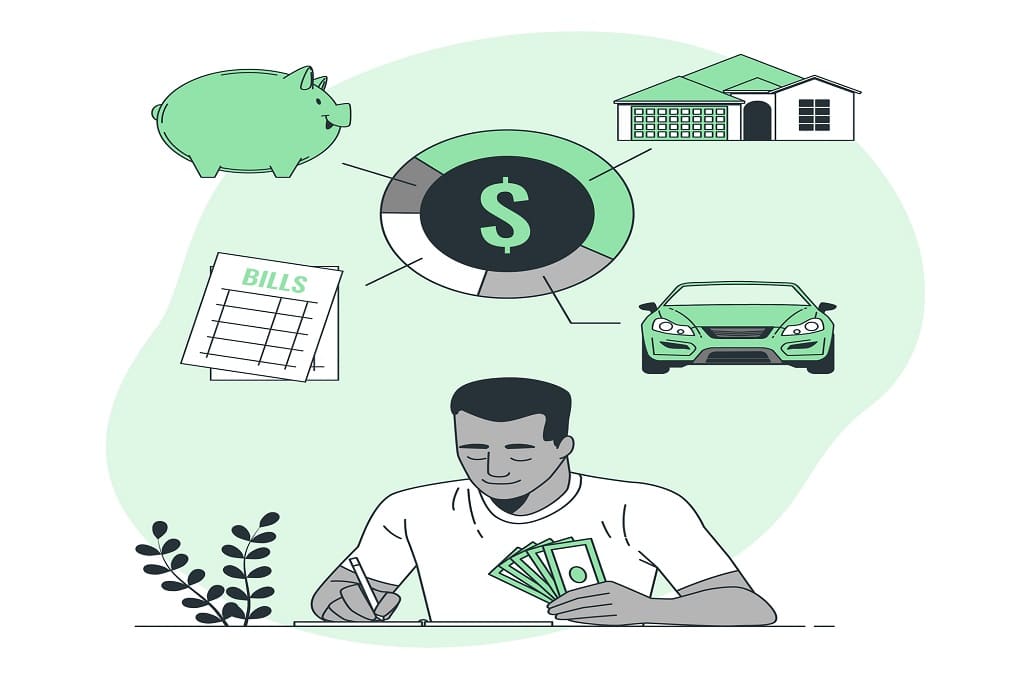A debt management plan seems to be the best alternative to get out of debt, in which you offer a reduced payment to each lender and ask them to freeze interest. However, lenders are not bound to negotiate.
Chances are they will comply with your offer if you reveal a true picture of your incapacity to afford payments by providing a record of incomings and outgoings.
After approval, you will make lower payments to your lenders, but your credit report will continue showing you are behind payments. However, it will also show an “agreement to pay” in place.
You must refrain from resting on your laurels as you make lower payments to avoid defaults on your credit report. Be informed that if you miss a repayment or arrears add up to a large amount of money, your account could be marked as defaulted.
However, some lenders just focus on “agreement to pay”.
DMP could be a solution to tackle several problems, but borrowers often ask what impact it will have on their credit scores.
Your credit score is just a small part of a big picture
Credit score decides whether you can borrow money at affordable interest rates or not. If this is too bad, your chances of getting money are so bleak.
The fact is that lenders do not bother about the score that credit reference agencies calculate. They have their own formula to see what is or is not essential to find your affordability.
If you need a DMP, it is obvious that regular debt payments are beyond your reach now, and there is no other way to tackle your debt without taking a toll on your credit points.
Therefore, it is always suggested that you pay off your debts whenever you get a chance. Worrying about a drop in your credit points should not stop you from clearing pending dues.
Missed payments are defaults, but not the way described
You may worry that missed payments can put your account in default. Well, it is true that the older the missed payment, the less intense the effect will be.
Your credit file is likely to show six years of payments. When you miss a payment the first time, it is marked as one-month default. If you missed a second payment as well, the former would be marked as two-month default, and the current one will be stated as one month late.
Defaults are notorious, and lenders do not like them as they badly reflect upon your financial behaviour. It is taken into account at the time of credit score calculation but defaults that matter are generally between the ages of there and six months.
Debt management plan and credit score improvement
DMP is often taken into account when you have taken on multiple debts and now struggling to pay them off. Whether you have lump sum payment loans or instalment loans for bad credit, this could be a great way to prevent yourself from falling into a debt cycle.
Here are some scenarios that tell how it will have an impact on your credit rating.
A temporary plan
When you lose your job, you may find it harder to meet your essential expenses, including debt payments. If an emergency crops up, you may decide to take out loans for the unemployed for bad credit, but that may not be a wise move.
In this situation, you may think of contacting a debt management company. The plan will prevent you from going your accounts to default. After finding a job, when you start making the usual payments, you will start seeing improvement in your credit score.
However, if any of your creditors has already declared you as a defaulter, the default will show up on your credit report and can put off various lenders.
A plan for ages
A temporary DMP will help you when you have lost your job, or you have fallen sick. The duration may vary between six and 12 months. Most of the times, these plans are challenging when you have already taken on too much debt beyond your affordability.
In this situation, it will take a couple of years. Once you have settled all outstanding dues, the DMP will show up on your credit report for six years from the date of settlement. You will likely get approval for short-term loans, including personal loans, but mortgage lenders may be reluctant to sign off on them.
However, it does not matter much if it is older than three years.
Is insolvency a good alternative to DMP?
Not clearing your debt is not a good choice. The owed amount will keep increasing because of accrued interest and late payment fees. Based on the current economic scenario, it is suggested that you stay away from debt as much as possible.
Amid the rising inflation rate, interest rates are expected to rise. They will worsen your debt. However, at the same time, other alternatives like debt relief orders and bankruptcy are also not better alternatives as they will have the same impact on your credit report.
The notice of debts that have defaulted will show up on your credit report from the date insolvency starts and remain there for the next six years.
Experts have reported that people choosing this as an alternative found it more difficult to rebuild their credit scores. In fact, they found it complicated to open a new bank account and get a credit card.
Therefore, as not to face this situation, you should:
- Try to borrow money based on your affordability.
- Make a plan to keep up with payments and stick to it.
- Create a budget and track your spending to curb spending.
- Have an emergency cushion to meet expenses for a rainy day.
The final comment
A debt management plan could have a negative impact on your credit rating but not for such a long time. If you ensure sensible borrowing, you may be able to avoid DMP. Borrow money only when you need it, create a budget, and track your expenses to avoid overspending.

Anna Johnson has more than 11 years of experience in direct lending industry of the UK. She is the Senior Content Editor at 24cashflow where she is leading a large team of loan experts. During her career, she has helped the loan aspirants to use the particular loans in the best way and improve their financial lives and status.
Anna Johnson is known for her in-depth research of the UK loan marketplace, as she has worked with many major lending firms in her career. During her educational phase, she has done a research on ‘Finance Fundamentals for Growing Business’.






